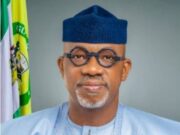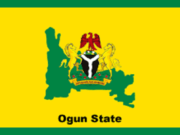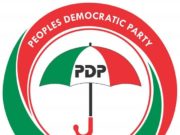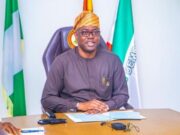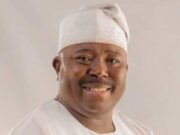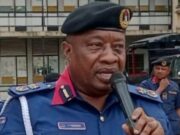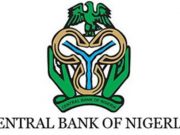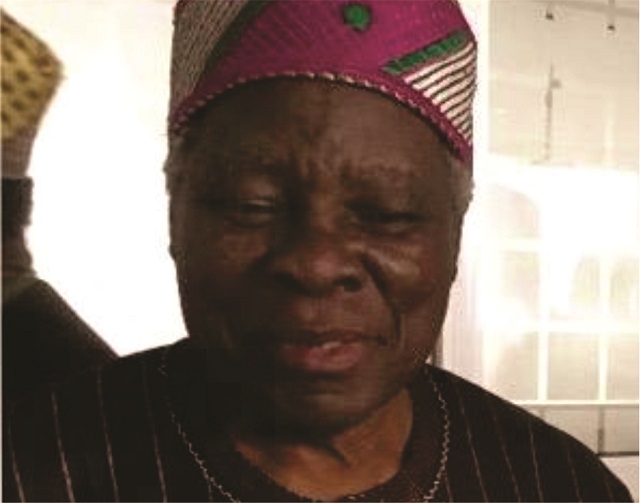- Says Most ‘Okada Riders’ Are Agents Sent To Attack Yorubas
There are leaders and there are leaders. However, Prof. Stephen Adebanji Akintoye, the leader of Yoruba people is one that leaves a serious impression after one’s meeting with him Does he still need an introduction? Well, for those who may not know…he attended the University of Ibadan and got his PhD there, lectured at the then University of Ife before he became a Senator. He later proceeded to the United States of America where he also lectured and lived for several years before he returned home… He was recently our guest on Parrot Xtra Hour on Radio (PXHR) aired on King FM 103.9 every Tuesday. The renowned historian spoke on his relationship with the national leader of the ruling All Progressives Congress (APC), Bola Ahmed Tinubu and the initiative of the governors of States in the Western Region to establish the Western Nigeria Security Network codenamed ‘Amotekun’. He could not make it to the Radio Studio but he was interviewed via the telephone by OLAYINKA AGBOOLA and TOYESE OYEBODE. Read excerpts as recorded by OLAITAN IGE:
Prof, you are one of the few Nigerian leaders who attended ‘regulated schools’ unlike others. Can you give us a brief account on your educational background?
Yes, during our time, there was always an entrance exam to the university college, Ibadan once in a year. All citizens of this country were encouraged to write this exam but few were chosen. Even, many of our teachers wrote that exam again and again but God did it for me after I graduated from Christ School, Ado-Ekiti in Ekiti State. I left Christ School in December 1955 with a Grade1 school certificate. I had C+ in one or two subjects and A in all the rest. When we wrote the exam in April, only six people were fresh graduates from the secondary school. Three people from Christ School and three others from different schools. So that was how I became an undergraduate. In those days, the admission was called concessional admission. Meaning we’ll be in intermediate for two years, after the intermediate, we’ll then go through another three (3) years, that made it a total of five years. People that wanted to undergo a general degree would be in school for four years. After my first year, I was greatly commended and I was given college service scholarship. I was admitted into honors class in History and after three years post-intermediate class, I had my Honors degree in History. Then, after my studies, I went back to the school that sponsored me to become a teacher. It was in that school I read that the university college was no longer a college but a university and the post-graduate school will be starting soon. That was how I came to Ibadan to have my post-graduate studies where I got my PhD. Only three of us didn’t have our masters because our works were exceptional so we were told to go into PhD straight.
Can you attempt to tell us how the journey of how you became the ‘Leader of the Yorubas’ started sir?
Ha, it is a long story. But I will attempt to break it down. You see, I’ve been into politics since my second year in the university and it was international politics. I was the president of all Nigeria United Nations Children’s Association; I was secretary of World University Service as an undergraduate. I attended student conferences both in Africa and other parts of the world. I started showing interest in Nigerian politics in my third year in the university college, which was in 1959. Then, about three of my friends and myself came together to form Action Group Students Association. We had our campaign in 1959, Baba Obafemi Awolowo said our contribution was so bold, so he asked that we should join the national executive of the Action Group. We were children but we were accepted as members of the regional executive of the Action Group. In 1962 when crisis broke out, a few of us also came together to revive Action Group Association. Chief Ayo Fasanmi was appointed as our president, I was the vice president. After that, I went back to my work. The thesis for my PhD has been completed as at that time. By August, 1966, I had completed my PhD and decided I would not work in Ibadan – so, I opted to go to the University of Ife which was a new school as at that time. I became a senior lecturer and by 1974, I became a university professor and was in charge of the Institute of African Studies, I became the director of the Institute of African Studies. The emphasis of the research we worked on at the University of Ibadan then was the reconstruction of the history of a non-literate people, that was where I started moving about. When Chief Awolowo came back in the year 1966, few of us went to meet him at Ife. We gave him our full support when he came back, we were called the ‘Ife Group’ back then. When it was time for the election, I went to Benue State to start up our party there, from there to Cross River State, I stayed in Uyo for many months. I was also the secretary of the parliamentary caucus of the Unity Party of Nigeria (UPN) at the National Assembly when I was a Senator.
When the military came back, I decided to leave Nigeria because I love Nigeria too much to see it disintegrate- for me to see the gradual decline of Nigeria was something I did not want to witness. That was how and why I left the shores of this country to live in the United States of America. I told myself then that I wouldn’t be back again. You see, I’ve gone all around the world talking passionately about Nigeria. In 1982, South Korea had an event in Seoul, I gave a lecture there and they wanted me to foster the relationship between Nigeria and South Korea. They had just completed the swearing in of their newly elected president then. After the swearing in, the political elites were all around for the lecture and I was proudly bragging about my country. Hmmm, I bragged about everything Nigeria could do for them, its not all about exporting crude oil to you, there are still many things we can do together. In 1990 when I saw that everything was in disarray, rather than sit and participate in the decline, I decided to go away. I was away for 25 years teaching abroad. When it was time for me to retire, I retired and remained in Pennsylvania. The sad happenings in Yoruba land then prompted me to start up a movement, ‘Odua Foundation’. When you look at the researches that we carried out, you’ll be very unhappy. The Yoruba nation has been going down steadily in Nigeria. Nigeria is declining, yes, but the decline of the Yoruba nation is the most troubling. A friend of mine who was a little bit older than myself who schooled in places like Ghana and America was invited in 2004 to an event in Kenya by the UNESCO and coming back, he wanted to see the Nigeria that he used to know as a young man. He got to America and asked me to see him and the first question he asked me was what happened to your country? What happened to Nigeria? Why is the poverty rate astounding? What happened? Especially your Southwest, what happened to it? You already laid a foundation for prosperity by providing free education and others and everything was looking good. He asked me, ‘What happened? How did your foundation of prosperity turn to poverty? I see your young people just roaming around doing nothing, especially in Lagos and Ibadan. Ahh…it was the year after that that I started the ‘Odua Foundation’ and we did a very thorough study on the impact of Nigeria on the Yoruba nation and it was very saddening, it was a very horrible picture.
Was that what encouraged you?
Ohhh, yes. We have members in every country of the world, ultimately, so they come for our meetings and we also called our Yoruba members to join us in America. People like Chief Bisi Akande, Chief Bode George. All of those ones had been to our meetings in America and even this, em, wonderful young man, Gani Adams who is now the Are Ona Kakanfo. We invited them to our events in America. Finally, the pressure group mounted pressure on me to come back home as service to our Yoruba nation. I resisted that for a long time but finally by 2015, we decided to do an explorative visit to Nigeria. I led the delegation and we came to visit all the major political leaders, all the leading Obas and we went back home in America to write our report and the result of that report prompted me to come back home at the end of 2015.
The ‘Amotekun’ issue is a veritable accomplishment for the South-West, don’t you see yourself as a lucky man for this to happen in your time?
Yes, I regard ‘Amotekun’ as something given by God to lead the Yoruba people back to the path of unity and development. I don’t think in modern times, the Yorubas have been as united as they are today and ‘Amotekun’ is a thing uniting us. What happened is that in the past four years, we have been under enormous pressure from the Fulani herdsmen and now we know it’s not just the herdsmen, it’s an agenda. Former President Olusegun Obasanjo said it’s a ‘fulanisation agenda’ and he’s absolutely right – because people like me, I don’t open my mouth to say something about an issue I don’t study carefully. I’ve studied the Fulani impact on the non-Fulani part of Nigeria. I wrote a long letter to the ‘Afenifere’ in 2017 detailing what I know to be the truth about the whole development and I did not carry out the research only in Nigeria though I did majority of them in Nigeria. I employed people who visited most part of Yoruba land and we have the list of places where the Fulanis had established hideouts and settlements, the summation is that we discovered 189 of such places. Yes, I submitted that to ‘Afenifere’ and you know, we were all shocked. So, there is an agenda, there is no question about that. We’ve known the Fulanis for quite a long time in the Yoruba nation, we know they quietly go about their business of cow rearing but suddenly they started carrying guns and destroying people’s farmlands and properties, if the famers protest, they kill the entire family. We Yoruba didn’t know we could react to this at first because we display strong hospitality towards visitors in our land, so the Yoruba people didn’t know what to do. Finally, we began to come together to discuss about what we could do. People were first telling us to defend our farms and lands but we Yorubas are a very civilized group of people, the result of that movement will be that we’ll end up killing Fulanis on our farmlands and Yoruba people can never do that. Our ancestors were always after helping their neighbors and accommodating strangers and we must follow suit, that’s our culture – so killing people on our land is a very difficult thing to do. Fortunately, the South-West governors have come together to give a more orderly resolve which is ‘Operation Amotekun’. It is God given path to the protection of the Yoruba people without going the messy way. Killing people around is very messy, so what we’re having is a more trained, more organized, well supervised body that will defend Yorubas, our farms, our forests, our bush parts and so on. That is a very good development indeed.
Those opposing the ‘Amotekun’ initiative have been saying that it is a project for the 2023 presidential race, what’s your take on this?
Ohhh no. We’re talking about defending Yoruba land we’re not talking about any election. There are Yoruba politicians who are ambitious about 2023 but that is their business. The business of the Yoruba nation now is to protect itself.
How would you describe your relationship with the likes of Asiwaju Bola Ahmed Tinubu and others?
I decided long time ago that I will never participate in partisan politics. I decided that before I started the ‘Odua Foundation’ in 2006. I decided that about a year before. I’ve said that for me to be useful, I must be able to relate with every Yoruba person, I must be able to knock on every Yoruba door and enter every Yoruba office in order to bring to them my perception. When people ask me if I’ve seen Asiwaju since I came back I’ll tell them no, I haven’t seen him. I have seen him in public places but I’ve never stood face-to-face to see or talk with him. I have never had a one-on-one meeting with him. That doesn’t mean I don’t have an interest in him, I have interest in every Yoruba person. For instance, in the last year of Goodluck Jonathan’s government, when Asiwaju was taken to court and charged with the criminal offence of having bank accounts abroad while he was governor, I called a meeting of the ‘Odua Foundation’ in America and we looked at it and our conclusion was, … well, we do not support corruption or illegality but what is happening to Asiwaju is wrong because it’s a case of selective justice. Even the president had accounts abroad at that time, his wife inclusive and so we decided to find out. So we hired a company to find out for us the account of every important Nigerian abroad, governors and all. We still have the records till date of accounts of the president, his wife, his ministers, advisers and other public office holders. Why is a society that is being led by such people now accusing one person and taking him to court for the same offence? That was the action we took and we believe that ehnn, because it became known that there was a Nigerian group collecting details of bank records of leading Nigerians, so we assumed, we’re not sure, we think that was why the case against Asiwaju was dropped. I would defend any Yoruba person and I don’t care about their politics.
How do you plan to bring in Yoruba people from Ilorin, some parts of Kogi State and the Benin Republic into your agenda?
Yes, I have contacts with all parts of Yoruba land including those in Kwara, Kogi, Edo, Delta and the far south. In my committee now of the Yoruba World Congress which is an organization I am operating, we are bringing every Yorubaman into the fold.
If you have the opportunity of meeting President Muhammadu Buhari, what will you tell him?
Haaa. I would tell President Buhari …this country that elected you as president is the greatest thing that the black man has in the world today and therefore, you need to change the way you’re handling it. You’re not here to promote a party or the Fulani. Its alright, we’re not from the same ethnic group, this doesn’t mean we do not love our ethnic group but since you have become the ruler of Nigeria, your duty is to Nigeria and since your Fulani people are doing what they are doing now, disrupting places and killing people and doing all sorts – you owe Nigeria the duty to look insightively into why they’re doing it, understand it and to use your influence as their ethnic man to stop them in the interest of Nigeria and you’re not doing it Mr. president, and you’re building a bad record for this part of the world. I know you can change it and you should change it. That’s what I’ll say to him.
If you have to talk to the South-West governors, what will you say to them, especially on the issue of ‘Amotekun’?
Yes, if I was to talk to them, I would say thank you very much to them and I would say your action is God’s inspiration for the salvation of the Yoruba people. You deserve the gratitude of all Yoruba people and we’re grateful to you.
How can they make the ‘Amotekun’ project very impactful?
The first thing is that the Houses of Assembly should pass the law giving legal and structural backing to ‘Amotekun’ so that we can have a team of great men and women defending our land and therefore we have a little army of our own so we have no one or anybody coming to kill you or destroy your farm anymore. It’s a very great venture of the Yoruba nation and all of us must work together to make it work.
How do you relax when you’re not working sir?
Do I ever relax? I don’t think I do (laughs). Well, in the past twenty to twenty five years, I’ve woken up every morning like about 3 to 3:30am to write and I do that until morning. During the day if I’m not reading, I’m writing, I write a lot. I have just finished a book now which I’ve been working on for about five years. It’s another book on the Yoruba nation. It’s worth the same thing as my history book which is very popular worldwide. It is a book of description of the Yoruba nation itself, its way of life. It’s a dynamic profile of the Yoruba nation and a little bigger than the history book.
Briefly sir, we’ll like you to speak to other Yoruba men and women.
Thanks. I greet all ‘Odua’ children, may God help us. The issue in front of us presently is that people come to our farmlands and destroy things, they are taught how to fight and are being deployed to South-West States and pose as ‘Okada’ riders. The study I did in 2017 revealed that majority of people who come to ride ‘Okadas’ are actually sent and they’re armed. It’s as if they’re expecting a day war will be declared and they’ll come out en-mass to kill, that is what they’re planning but God is revealing all this to us now. Let us rise up to defend our land. We are not a nation that kills foreigners and we’re not a nation that will lie down and beg any foreigner to come and feed us.














